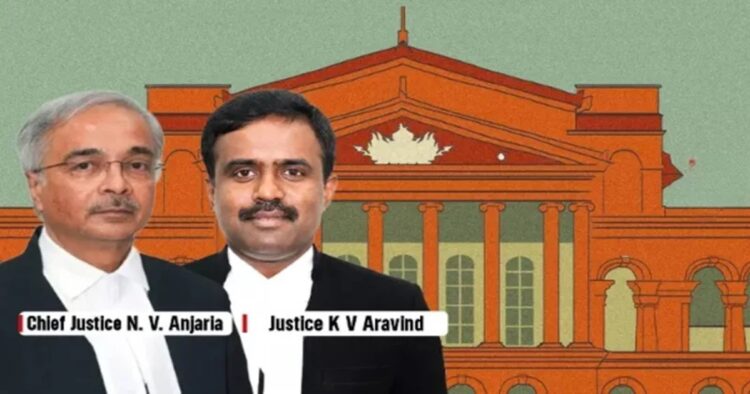In an important legal development that could deal a major setback to the Congress-led state government, the Karnataka High Court on Tuesday, issued strong remarks about the government’s controversial decision to authorise the Waqf Board to issue marriage certificates to Muslim applicants.
The court observed that such an order is unprecedented and without legal backing, raising serious questions over the government’s decision and its impact on governance. The issue stemmed from a government order issued on September 30, 2023, by the Under-Secretary of the Government’s Minority, Waqf, and Haj Department.
The order conferred the Waqf Board with the authority to issue marriage certificates for Muslims, an act which, according to legal experts, is not supported by the provisions of the Waqf Act, 1995. A public interest litigation (PIL) was filed by Alam Pasha, a Bengaluru-based social activist, challenging the legality of the government’s decision.
A division bench comprising Chief Justice NV Anjaria and Justice KV Arvind took up the matter, remarking that the government’s action lacked legal grounding. The bench pointedly questioned the state government, asking, “Show us the power to issue certificates under the Waqf Act.” The court further noted that the government’s order which had granted such powers to the Waqf Board, was not consistent with the provisions of the Waqf Act, 1995.
The court also rejected the state government’s request for an extension of two weeks to file its objections, and adjourned the hearing to November 21. The petitioners argue that this move is a clear case of overreach and political appeasement by the state government, as it confers powers to an already overburdened Waqf Board, whose primary function.
The petitioner further pointed out that the registration of marriages, especially Muslim marriages, is a matter of vital statistics and governance. The purpose of marriage registration is not religious or cultural but to maintain accurate records for governmental purposes, which could be better handled by other departments instead of delegating it to a body that is already failing to carry out its primary responsibilities effectively.
This move by the Congress government to empower the Waqf Board with such authority has already stirred a political storm, with opposition accusing the government of appeasing the Muslim community for electoral gains. They claim that this action is an attempt to consolidate Muslim votes ahead of upcoming elections, further deepening the rift between the Congress and its political rivals,

















Comments